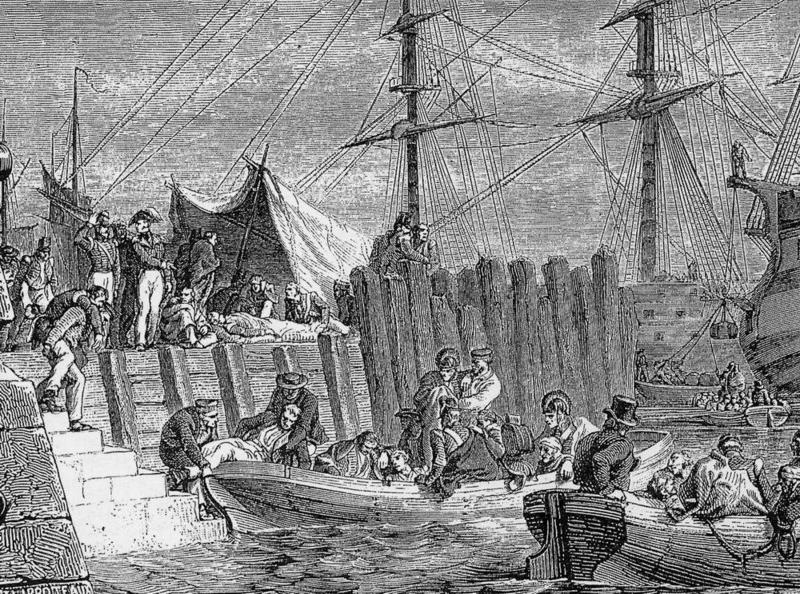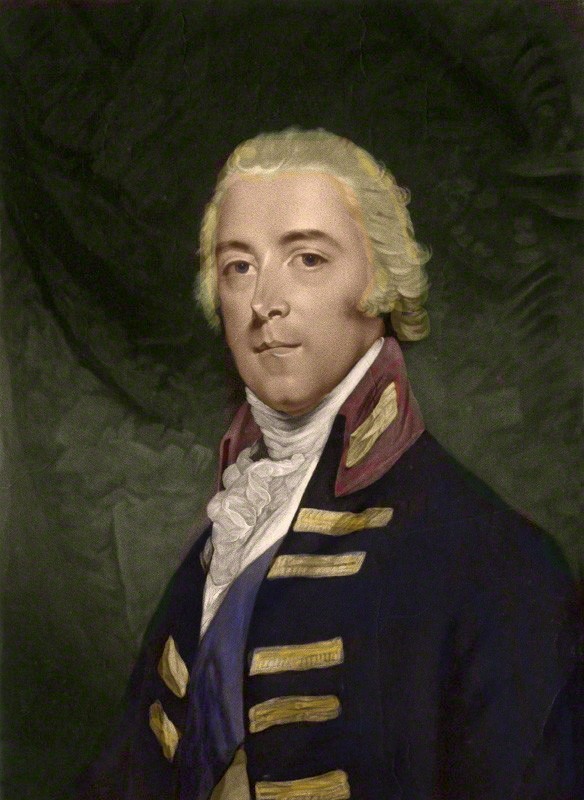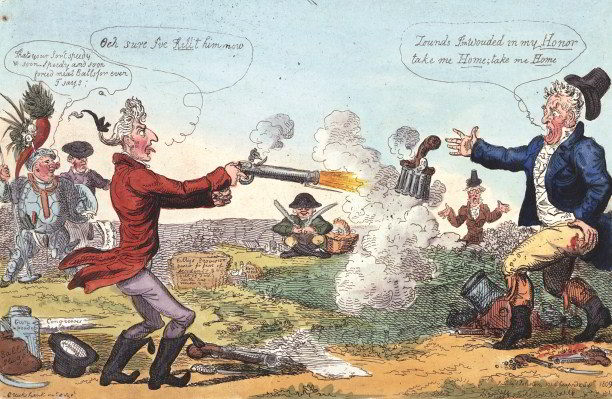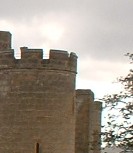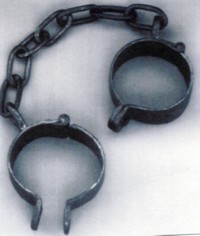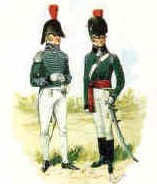The Walcheren Expedition: 30 July to 10 December, 1809
The Walcheren Expedition, a British military operation during the Napoleonic Wars, formed the last in a series of operations in Flanders (present-day Belgium). It's aims were two-fold: dissipate French ships from the mouth of the Scheldt River; support the Austrians, Britain's political allies, by engaging the French and drawing them away from the Danube. The expedition was doomed from the outset and neither of these objectives were met.
Napoleon had delivered a crushing defeat at the Battle of Wagram on the 5th and 6th of July and the Austrians were suing for a peace settlement. This news did not deter decision makers who believed there was still an opportunity to reduce French power and liberate Antwerp. The largest British expedition ever assembled, approximately 40,000 soldiers, 15,000 horses, about 600 ships, together with field artillery and two siege trains crossed the North Sea.
As a first move, the British seized the swampy, fever-ridden island of Walcheren at the mouth of the River Scheldt as well as South Beveland Island (both in the present-day Netherlands). The British troops soon began to suffer from a combination of malaria, dysentery, typhoid and typhus dubbed "Walcheren Fever". Within a month of occupying the island they had over 8,000 confirmed cases. Medical provisions for the expedition proved completely inadequate.
The operation was commanded by John Pitt, 2nd Earl of Chatham (Army) and Sir Richard Strachan (Navy). Chatham had a reputation as an extremely cautious commander, and the operation proceeded at a dangerously slow pace. On the other hand, Strachan's quick temper and impulsivity had earned him the moniker "Mad Dick".
While the British troops were diverted into the capture of Flushing and surrounding towns on August 15th, the enemy heavily reinforced Antwerp. With the main objectives out of reach, the expedition was called off in early September. Approximately 12,000 troops stayed on Walcheren island. By October only 5,500 remained fit for duty. Ironically, it had been widely reported a few years earlier that an occupying French force had lost 80% of its number due to disease.
In all the British government had wasted almost £8 million on the expedition, 4,067 men had died, only 106 of those in combat. Almost 12,000 were still ill in February of 1810 and many remained permanently unfit for service.
John Pitt, 2nd Earl of Chatham
Evacuation of British Troops from Walcheren, August 1809
Scheldt Inquiry and Fuller's Disgrace
The Walcheren Expedition was a political as well as military disaster. Prime Minister William Henry Cavendish Cavendish-Bentinck, 3rd Duke of Portland, suffered declining health, resigned and died shortly after. Turmoil pervaded the Tory cabinet and war minister Robert Stewart, Viscount Castlereagh and foreign secretary George Canning fought a duel on 21 September 1809 on Putney Heath. After failed attempts to form a combined government with the Whigs, Spencer Percival stepped into the void.
Whig MP Lord Gower's initial bid to mount an inquiry and persecute the guilty parties was quashed 263-167 in the House of Commons on 23 January 1810. A subsequent motion by another Whig, Lord Porchester, for inquiry by committee of the whole House into the failure of the expedition passed 195-186.
Between 2 February and 20 March 1810 the Scheldt Inquiry met twenty times. It was during such a meeting on 27th February that John "Mad Jack" Fuller disrupted proceedings with an outburst of unparliamentary language. The exact word's Fuller spoke have been lost in time but it was reported in The Times on the 1st of March 1810 that Fuller referred to the Speaker as, " the insignificant little fellow in the wig".
From Hansard:
"PROCEEDINGS RESPECTING MR. FULLER FOR DISORDERLY CONDUCT.
HC Deb 27 February 1810 vol 15 cc 641-2 641
—The order of the day being read, for the House to resolve itself into a Committee of the whole House, to enquire further into the policy and conduct of the late Expedition to the Scheldt: the House resolved itself into the said Committee; and after some time spent therein, Mr. Speaker resumed the Chair; and sir John Anstruther reported from the Committee, that they had examined a witness, and had made a further progress in the matters to them referred; and that he was directed by the Committee to move that they may have leave to sit again. And the House being informed that a member of the Committee had misbehaved himself during the sitting of the Committee, making use of profane oaths, and disturbing their proceedings, John Fuller esq. member for Sussex, the member complained of, was heard to excuse himself; in the doing of which he gave greater offence, by repeating and persisting in his disorderly conduct. Mr. Speaker thereupon called upon the said Mr. Fuller by his name; upon which Mr. Fuller was directed to withdraw;—and he withdrew accordingly.
Ordered, nem. con. "That the said John Fuller, esq., for his offensive words and disorderly conduct, be taken into the custody of the Serjeant at Arms attending this House; and that Mr. Speaker do issue his Warrant accordingly."—And the Serjeant at Arms having informed the House, that he had, pursuant to their order, taken into his custody the said Mr. Fuller;
Resolved, "That this House will, immediately, resolve itself into a Committee of the whole House, to enquire further into the policy and conduct of the late Expedition to the Scheldt:" The House accordingly resolved itself into the said Committee; and after some time spent therein; the said Mr. Fuller returning into the House in a very violent and disorderly manner; Mr. Speaker resumed the Chair, and ordered the Serjeant to do his duty; Mr. Fuller was accordingly taken out by the Serjeant, assisted by his messengers.
A member in his place, having informed the House, that Mr. Fuller had requested him to offer his excuse to the House for his misbehaviour; a motion was made, and the question being put, That John Fuller esq. be discharged:—It passed in the Negative."
The following day, Fuller apologized at the bar in the House of Commons, was reprimanded by the Speaker and released from custody.
Although Chatham resigned and Castlereagh was disgraced, no one was held accountable for the Walcheren Expedition fiasco and the loss of thousands of lives. It marked the beginning of the end of Fuller's Parliamentary career. He did not stand for re-election at the end of his term in 1812.
'Killing no murder, or a new ministerial way of settling the affairs of a nation!' by Isaac Cruickshank with Castlereagh on the left and Canning on the right.
"The whole country, from one end to the other, was loudly calling for it; and the country, he must say, had a right to be informed where the fault lay whether the Expedition had been badly planned, or badly executed. The inquiry, therefore, was indispensably necessary; and the sooner that House should decide upon it, the sooner they would prove themselves to be the real representatives of the people who sent them there."
John Fuller supporting the motion that an inquiry into the Walcheren Expedition be undertaken, Hansard HC Deb 26 January 1810 vol 15 cc161-208
John 'Mad Jack' Fuller
Walcheren Expedition and the Scheldt Inquiry
On the Trail of Mad Jack Fuller BLOG
Fuller Family of Sussex GENEALOGY PAGES
